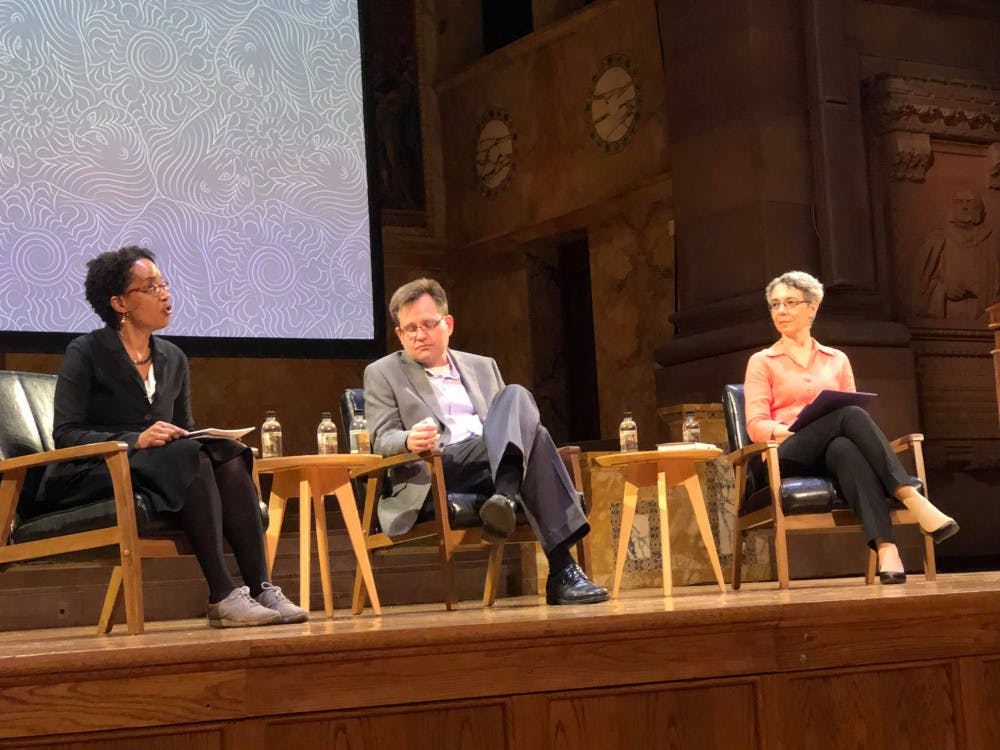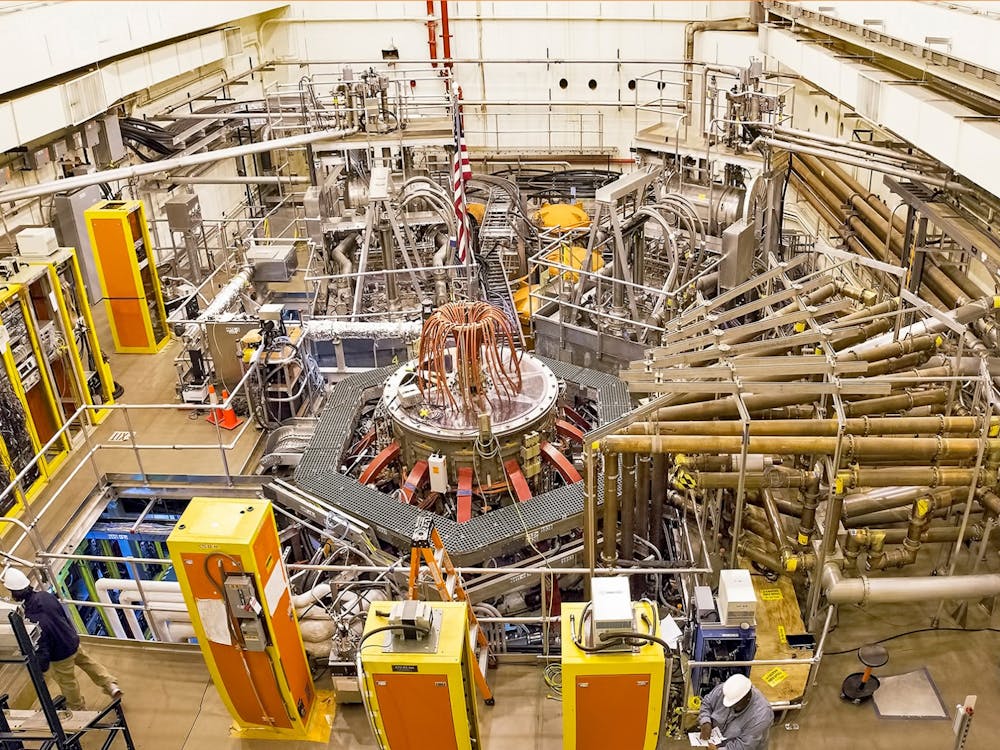On Thursday, Oct. 4, Department of Anthropology chair Carolyn Rouse and politics professor Keith Whittington discussed free speech by focusing on power dynamics on college campuses. The event, which was called “How Do We Balance Free Speech with Civility?”, furthered discourse around this year’s University pre-read, Whittington’s “Speak Freely,” in tandem with this year's “She Roars” conference.
“Those with institutional power, their words carry the weight of action,” Rouse said.
“We are living in a complicated, confusing, messy free speech environment,” said Vice Provost for Institutional Equity and Diversity Michele Minter who moderated the discussion. “It includes white supremacists marching at the University of Virginia in Charlottesville, attacks on the illegitimacy of the press, counter protests movements — like ANTIFA — and the term ‘snowflakes.’”
Minter strongly emphasized the University’s commitment to free speech.
“At Princeton, we refuse to believe free speech and inclusivity are pitted against each other,” Minter continued.
In his opening arguments, Whittington reiterated the main arguments of his book, that free speech is part of a university’s mission and that controversial ideas are not only expected — but necessary — on a university’s campus.
“Campus, in some way, is a microcosm of what we’re experiencing in American society,” he said.
He noted that universities are meant to “take ideas seriously,” grappling with them in order to try to push the boundaries of human knowledge.

Rouse said that she was also a proponent of free speech and a believer in the “gospel of Whittington.” She also spoke about how absolute free speech does not exist, that orthodoxies around speech are generally positive, and that conversations about speech has to include a conversation about power.
According to Rouse, speech is a performance that depends on the context and cultural conventions. No one actually says “whatever they want, whenever they want, to whomever they want,” she explained.
She pointed to the example of testimony from Dr. Christine Blasey Ford during the Brett Kavanaugh hearings.
“Dr. Ford’s gender constrained her,” Rouse said. “She could not show anger or lose control lest she be characterized as hysterical.”

On orthodoxy, she argued that a productive debate between two opposing views requires holding some beliefs “stable.” For instance, if the Supreme Court of the United States debates the Second Amendment, the debate relies on a “shared belief in the American constitution.”
Rouse also emphasized the responsibility that institutions and those with institutional power have regarding free speech.
For example, she mentioned President Christopher Eisgruber ’83’s inaugural speech, in which he reaffirmed his support for the humanities and qualitative social sciences. During a time when humanities and social sciences had been defunded in various institutions across the country, Rouse explained that she and her colleagues felt relieved.
Questions from the audience during the Q&A session focused primarily on campus speakers.
Minter emphasized that the University wants campus groups to invite campus speakers to broaden the campus discussion. But she also said that the University encourages student groups to not rescind invitations sent to more controversial speakers.
Rouse mentioned a situation regarding campus speakers that she has experienced. She had previously organized a walkout when Charles Murray was invited to speak at the University, explaining that the walkout showed that the protestors opposed the scholarship that Murray advanced.
Rouse also talked about the Professor Lawrence Rosen controversy. She mentioned that Rosen made a mistake by using the term “n****r” in lecture, but defended his character, and called for “forgiveness on the part of all of us.”
“Larry’s a progressive through and through; he’s an ally in every sense of the word,” Rouse said. “People on the left and people on the right have to be really cautious about how they’re characterizing people … they’re flawed, they make mistakes.”
The event took place at Richardson Auditorium at 3:15 p.m. and was meant to mimic the structure of the annual pre-read assembly.








